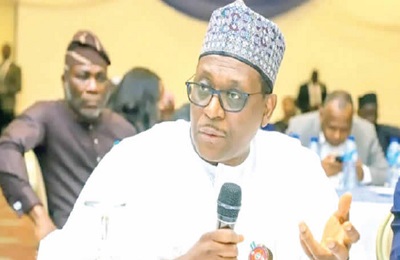Abuja – Good news for healthcare in Nigeria: the nation is making noticeable strides in expanding access to quality medical services, especially at the local Primary Health Care (PHC) level. According to Professor Muhammad Pate, the Coordinating Minister of Health and Social Welfare, ongoing reforms in the health sector are now resulting in approximately 80 million patient visits to PHC centers across the country each year, a key indicator of improving Nigeria healthcare access.
Speaking at a high-level meeting (the Sector-Wide Approach State Strategic Engagement), Minister Pate highlighted that several states are showing significant advancements. These improvements are seen in areas like increased skilled birth attendance, better antenatal care coverage, and more reliable performance data reporting.
PHC System Seeing Positive Changes
Despite ongoing challenges, Minister Pate expressed optimism. He noted that the primary healthcare system “is beginning to pick up” thanks to collaborative reform efforts involving the federal government, state and local authorities, civil society groups, and international development partners. “Just to put it in context, every quarter, about 20 million contacts are made with Nigerians through the primary health care system that has now been revamped,” Pate stated. He assured that these positive trends in Nigeria healthcare access would be sustained to ensure citizens feel the benefits.
States Reviewing Performance, Tackling Issues
Dr. Muntaqa Umar Sadiq, the National Coordinator of the Sector-Wide Coordination Office, shed more light on the process. He explained that the current dialogue involves states closely examining core health indicators. This helps pinpoint specific problem areas that need focused attention. “This gives us a basis for performance management with states so that we’re focusing on the important notes, identifying the problems, and removing those issues to achieve our collective goals,” Sadiq remarked.
He emphasized that states have actively identified their unique issues and bottlenecks. The federal ministry is now providing support to help them overcome these obstacles, aiming for better performance and wider healthcare access.
Looking Ahead: Better Health Outcomes
The ultimate goal of the Sector-Wide Coordination Office is to see these efforts translate into tangible improvements in the health of the population. This includes ensuring more health facilities are fully functional and equipped to serve their communities. “Going forward, we hope that this will translate into improvement in population health outcomes where facilities are more functional,” Sadiq concluded. With current progress and ongoing commitment, Nigeria appears on track for significant improvements in healthcare delivery.
By Abiodun Labi








